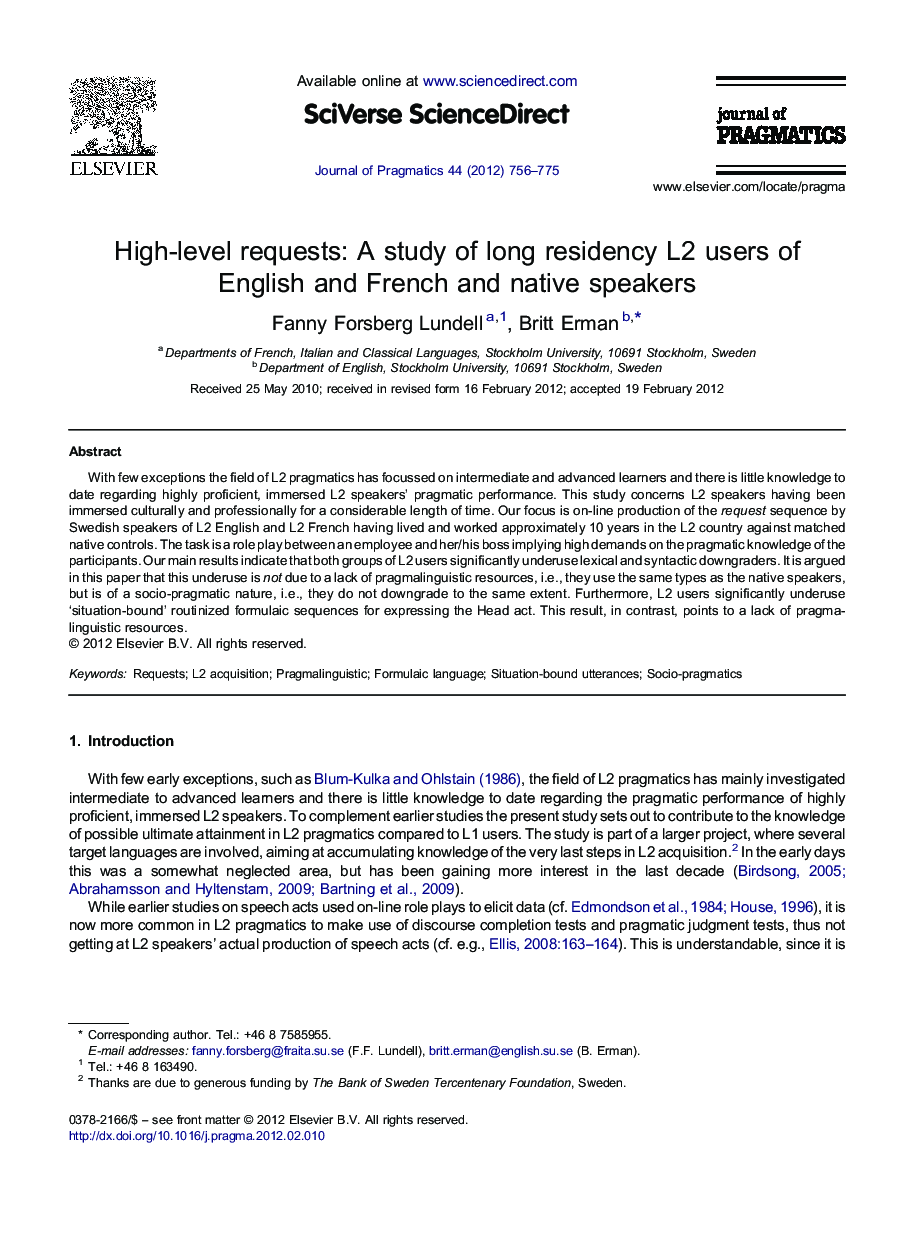| Article ID | Journal | Published Year | Pages | File Type |
|---|---|---|---|---|
| 933022 | Journal of Pragmatics | 2012 | 20 Pages |
With few exceptions the field of L2 pragmatics has focussed on intermediate and advanced learners and there is little knowledge to date regarding highly proficient, immersed L2 speakers’ pragmatic performance. This study concerns L2 speakers having been immersed culturally and professionally for a considerable length of time. Our focus is on-line production of the request sequence by Swedish speakers of L2 English and L2 French having lived and worked approximately 10 years in the L2 country against matched native controls. The task is a role play between an employee and her/his boss implying high demands on the pragmatic knowledge of the participants. Our main results indicate that both groups of L2 users significantly underuse lexical and syntactic downgraders. It is argued in this paper that this underuse is not due to a lack of pragmalinguistic resources, i.e., they use the same types as the native speakers, but is of a socio-pragmatic nature, i.e., they do not downgrade to the same extent. Furthermore, L2 users significantly underuse ‘situation-bound’ routinized formulaic sequences for expressing the Head act. This result, in contrast, points to a lack of pragmalinguistic resources.
► Request act in on-line production of high-level, long-residency L2 users of French and English and native speakers. ► Special focus on comparison between non-native sand native speakers, but also comparison between native speakers of English and French. ► L2 users significantly underuse lexical and syntactic downgraders across the whole Request sequence. ► L2 users significantly underuse situation-bound utterances. ► English native speakers use significantly more supportive moves and downgraders than all the other groups, suggesting that the native English group is the least direct.
